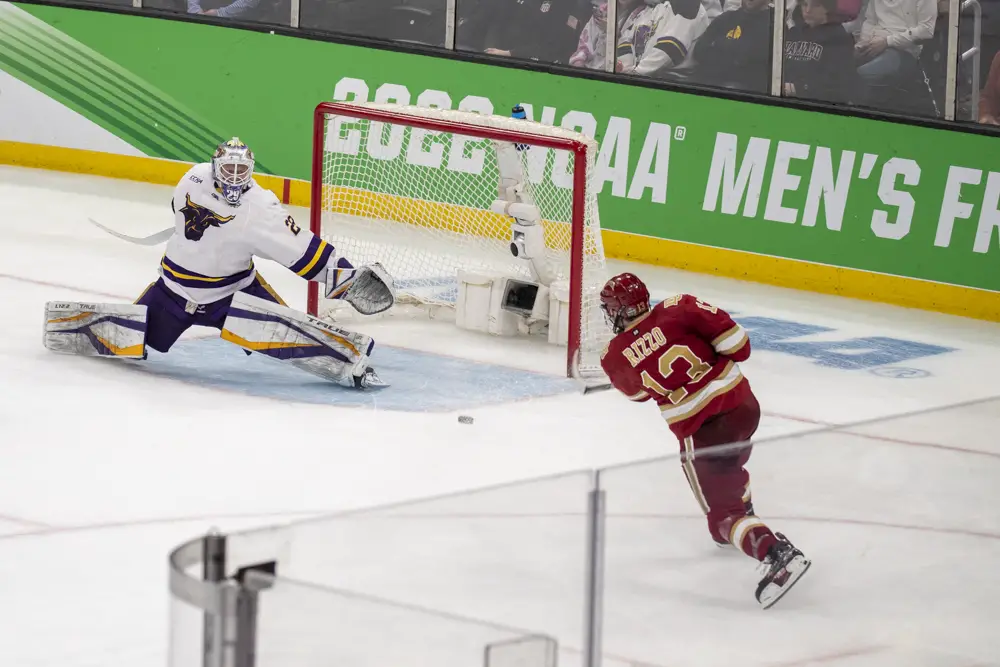
BOSTON — Few teams owned the third period like Minnesota State during the 2021-22 season.
The Mavericks hadn’t lost when leading after two since a mid-October matchup against Michigan and helped run its win streak to 18 games by dominating Minnesota for three goals in the final 20 minutes on Thursday.
As the second period drew to a close in Saturday’s national championship game, Minnesota State hadn’t been perfect but it led 1-0, a dream sequence for anyone who saw the earlier stories.
Unlike those other fantasies, the third period against Denver turned the Minnesota State championship drive into a certified nightmare. Denver scored in the first five minutes to tie the game before the Pioneers took the lead three minutes later.
The sequence stunned the Mavericks, who couldn’t recover and watched the championship slip away in one of the unlikeliest scenarios imaginable in a 5-1 loss.
“I thought we got off to a good start, even a good 40 minutes,” Mavericks coach Mike Hastings said. “Once we gave up the first one, we started leaking oil a little bit and couldn’t stop the bleeding. We started chasing the game a little bit, so tonight was the perfect example that a minimum of 60 minutes is what you have to have. I thought we had a good first 40 and not a great last 20, so congratulations to Denver for owning it.”
Keeping composure was a point of emphasis throughout the week, but Denver’s first goal seemingly tilted the Mavericks out of their game. They attempted to overcome the shock by extending their lineup and rolling four lines, but relying on what previously worked throughout the season failed to stop the Pioneers, who added the second goal as a power play ended.
“If you look at their first goal, [we] wrap a puck around the net [on offense],” Hastings said. “We had a good scoring opportunity. They transition. We’ve got numbers back, and we get into our zone. [Ryan] Barrow gets around and loses our defender, gets to the net, gets a rebound, finishes.
“Until that point, I thought we were in decent shape,” he said. “Then momentum got on their side. They got to the power play, [and] we did a decent job at getting that killed up until the last 10 seconds. Then I think it’s a spot that we hadn’t been in a while, and I didn’t think we managed it very well. They smelled some blood in the water and were incredibly aggressive.”
That the power play, or at least its immediate aftermath, impacted Minnesota State greatly compounded the issues facing a team that went 29-3 when scoring a power-play goal before Saturday. It more specifically bit into a plus-40 overall goal differential against opponents in the third period and wounded a team that allowed more than double the number of goals it previously allowed in the third period over the entire 2022 postseason.
“I wanted to try to get us back into some guys that I thought were having a decent night because we had a couple [of players] that were off,” Hastings said. “So we tried to adjust some things as far as getting back to us [playing] four lines, but we just couldn’t find a rhythm again. I want to give Denver credit for keeping us out of that. They kept the game simple, and I thought we started to press. When you press, you can create offense for the other team.
“Denver’s a good enough team that you don’t have to help them create their own offense,” he added, “and I thought they took advantage of it.”


